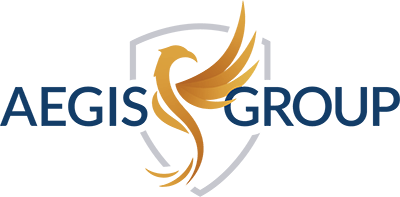Whether you run a family-owned restaurant, a small construction company, or a growing healthcare practice, protecting your business from unexpected losses is critical. That’s where commercial lines insurance comes in. It’s the backbone of smart business risk management — offering protection from lawsuits, property damage, employee injuries, and other unforeseen events that could threaten your operations.
For small business owners, understanding commercial lines insurance can feel overwhelming. The good news? Once you understand what it covers, why it matters, and how to tailor it to your industry, you’ll have the foundation to make confident decisions that protect your bottom line.
In this comprehensive guide, we’ll break down exactly what commercial lines insurance is, how it works, the key coverage types every small business should consider, and how to choose the right plan for your company’s unique risks.
Understanding Commercial Lines Insurance
Commercial lines insurance refers to insurance products designed specifically for businesses, rather than individuals. It protects your company against financial losses from accidents, lawsuits, natural disasters, theft, and more.
Unlike personal insurance, which covers individuals and households, commercial lines policies are built to address the complex risks businesses face — such as employee liability, property damage, cyber incidents, and business interruption.
Simply put, if your company owns property, employs workers, or provides professional services, you need commercial lines coverage to stay protected and compliant.
Why Small Businesses Need Commercial Insurance
Even a single unexpected event — like a fire, flood, or customer lawsuit — can financially devastate a small business. That’s why insurance is more than a legal requirement; it’s a critical part of your long-term strategy.
- Legal protection: Many states and industries require certain types of commercial coverage (like workers’ compensation or general liability).
- Financial stability: Insurance helps your business recover from losses without draining cash reserves or credit lines.
- Client and partner trust: Many contracts and clients require proof of insurance before doing business.
- Peace of mind: You can focus on growth, knowing your risks are covered.
To explore coverage options designed specifically for businesses like yours, visit Aegis Commercial Insurance for expert guidance and personalized solutions.
Types of Commercial Lines Insurance Every Small Business Should Know
There’s no one-size-fits-all policy when it comes to commercial insurance. Each business faces unique risks, depending on its industry, size, and location. However, several key types of coverage form the foundation for most commercial insurance programs:
1. General Liability Insurance
This is the cornerstone of most commercial insurance programs. General liability protects your business against third-party claims for bodily injury, property damage, and personal injury (like libel or slander).
For example, if a customer slips and falls at your retail store or your employee accidentally damages a client’s property, general liability insurance helps cover legal fees, settlements, and medical expenses.
2. Commercial Property Insurance
Whether you own or lease your workspace, commercial property insurance covers physical assets like buildings, equipment, furniture, and inventory. It protects against perils like fire, theft, vandalism, and certain types of weather damage.
Many businesses bundle property and liability coverage into a Business Owner’s Policy (BOP), which provides affordable, comprehensive protection.
3. Workers’ Compensation Insurance
Workers’ comp provides medical benefits and wage replacement if an employee is injured or becomes ill while on the job. It also protects your business from potential lawsuits related to workplace injuries.
In most states, workers’ compensation is legally required for businesses with employees. Failing to maintain coverage can result in fines or even shutdowns.
4. Commercial Auto Insurance
If your business owns or uses vehicles for operations — such as deliveries, transportation, or job site visits — commercial auto insurance is essential. It covers property damage, liability, and injury expenses after an accident involving a company vehicle.
Even if employees use their personal cars for work, you may need hired and non-owned auto coverage for full protection.
5. Professional Liability (Errors & Omissions)
Also known as E&O insurance, professional liability coverage protects businesses that provide services or advice. It covers claims related to errors, negligence, or failure to deliver promised results.
Healthcare providers, consultants, accountants, and contractors often carry this coverage due to the nature of their work. Learn more about specialized coverage options under Executive Risk Management.
6. Cyber Liability Insurance
With data breaches and ransomware attacks on the rise, even small businesses face cyber risks. Cyber liability insurance helps cover the cost of data recovery, legal defense, customer notification, and regulatory fines.
7. Business Interruption Insurance
When disaster strikes — like a fire or storm — business interruption coverage replaces lost income during downtime. It can help pay for temporary relocation costs and ongoing expenses such as payroll and utilities.
8. Commercial Umbrella Insurance
This policy provides an extra layer of liability protection. If a claim exceeds your standard liability coverage, umbrella insurance steps in to cover the difference, protecting your assets and future earnings.
Comparison Chart: Common Commercial Insurance Coverages
| Coverage Type | What It Covers | Ideal For |
|---|---|---|
| General Liability | Third-party bodily injury or property damage | All businesses |
| Property Insurance | Damage to buildings, inventory, or equipment | Businesses with physical locations |
| Workers’ Compensation | Employee injury and wage protection | Businesses with staff |
| Professional Liability | Negligence or service errors | Service-based professionals |
| Cyber Liability | Data breaches and cyber attacks | Any business using technology |
| Commercial Auto | Vehicle-related damages or injuries | Businesses using vehicles |
| Umbrella Coverage | Additional liability protection | Growing businesses with multiple risks |
How to Choose the Right Commercial Insurance Policy
Every small business has different needs. Here’s a practical step-by-step approach to building a policy that fits your operations and budget:
- Assess your risks: Identify potential threats such as accidents, data breaches, or natural disasters.
- Review your contracts: Many clients and landlords require specific insurance types or minimum coverage limits.
- Work with an independent agency: Agencies like Aegis Insurance represent multiple carriers, helping you compare options for the best value.
- Bundle policies: Combining property, liability, and other coverages can save money.
- Update regularly: As your business grows, revisit your coverage to ensure it still matches your needs.
Common Mistakes Small Business Owners Make
- Assuming personal insurance covers business activities
- Buying the cheapest policy without checking exclusions
- Failing to update coverage after growth or expansion
- Ignoring cyber or liability risks until after an incident
- Not consulting a licensed advisor for policy customization
Where to Get Trusted Commercial Insurance Guidance
Working with an experienced insurance partner helps ensure your coverage grows with your business. The Aegis Insurance team provides personalized support to identify coverage gaps, manage renewals, and advocate for you during claims.
They specialize in a range of solutions, including:
FAQs: Commercial Lines Insurance for Small Businesses
What is commercial lines insurance?
Commercial lines insurance refers to policies that protect businesses from financial losses due to accidents, liability claims, or property damage.
Is commercial insurance mandatory?
Some types, like workers’ compensation and commercial auto insurance, are required by law. Others depend on your industry and contractual obligations.
How much does commercial insurance cost?
Premiums vary based on business size, location, industry risk, and coverage levels. Many small businesses spend between $50 and $300 per month on basic coverage.
Can I combine multiple coverages into one policy?
Yes, a Business Owner’s Policy (BOP) bundles general liability and property insurance for convenience and savings.
How often should I review my commercial insurance?
At least once a year, or whenever your business expands, hires new employees, or adds services.
Conclusion
Commercial lines insurance is more than just a safety net—it’s an investment in your business’s future. From protecting physical assets to defending against lawsuits, it ensures you can recover quickly and confidently after setbacks.
By understanding your risks, comparing coverage types, and working with trusted professionals, you can build a policy that fits your unique needs. To get started, connect with the experts at Aegis Insurance for a personalized consultation.

